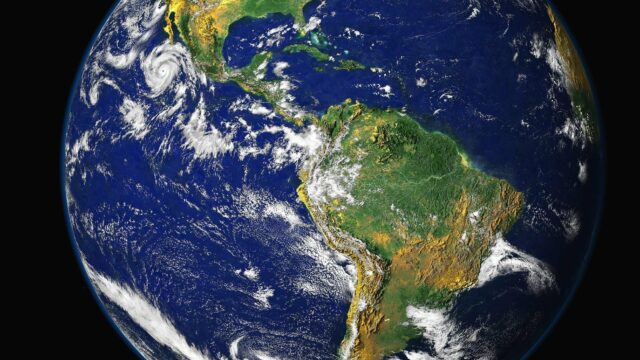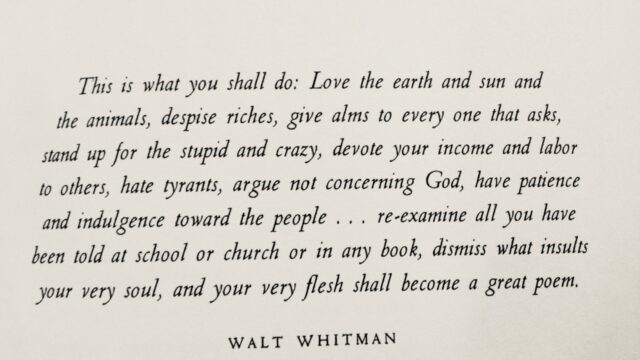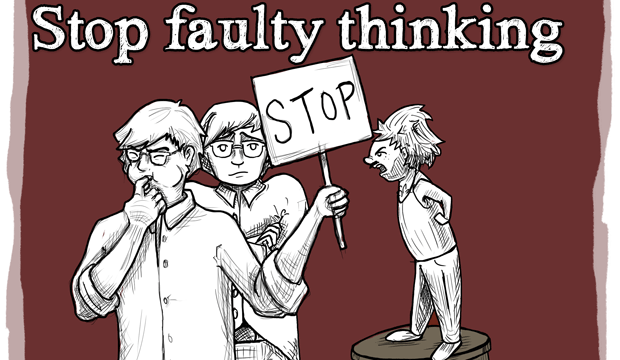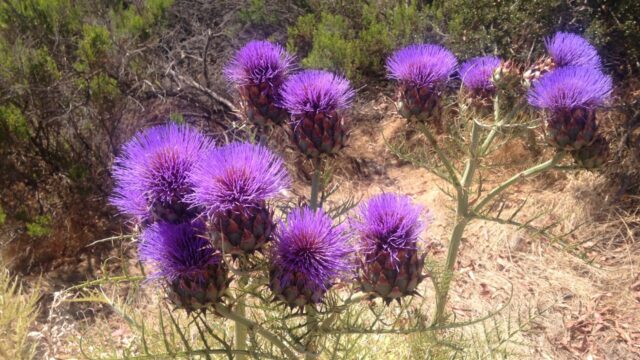I see myself as an intelligent and curious person. But I plead ignorance in knowing Earth as a planet, complex ecosystem, and celestial home. Scientists estimate the Earth to be 4.54 billion years old, so there is a lot to know. To begin, our first human ancestors appeared only five to seven million years ago, a mere blink of an eye. Thus, for at least four billion years (that’s FOUR one-thousand million years), there were no humans roaming the planet. It was not, however, a tranquil time.
Geologic time scale divides Earth’s lengthy history into four eons, the broadest category of geological time. The first division is called the Hadean eon, when the Earth and moon formed. Hadean comes from the word Hades, the Greek god of the underworld, and the underworld itself. It alludes to the hellish conditions prevailing on Earth at the time. The planet was brand new and still boiling owing to its recent accumulation of matter. There was an abundance of short-lived radioactive elements in the atmosphere, and frequent collisions with asteroids, meteorites, and other elements of the early Solar System. The hellish Hadean eon lasted 600 million years.
From around 4 to about 2.5 billion years ago, the Earth cooled and calmed itself enough for continents to form and for the earliest known life to emerge. These life forms were microbes found in hydrothermal vents. This constituted the second eon, the Archean. The word “Archean” comes from the ancient Greek word Αρχή (Arkhē), meaning “beginning or origin.” During this time, tiny organisms known as cyanobacteria, or blue-green algae, developed photosynthesis: using sunshine, water and carbon dioxide to produce carbohydrates and oxygen.
For the following 2.5 billion years of the Proterozoic eon, the third major geological time epoch, oxygen generated by cyanobacteria accumulated to comprise 21% of the atmosphere. The name Proterozoic is a mixture of the Greek words: protero- meaning “former, earlier”, and – zoe meaning “life”. The accumulation of oxygen in the atmosphere changed the Earth’s atmosphere from a weakly reducing atmosphere to an oxidizing atmosphere. This produced the Great Oxidation Event (GOE), causing many existing species on Earth to die out. As oxygen built up, anaerobic bacteria died leading to the Earth’s first mass extinction. Today, all plants incorporate cyanobacteria (or chloroplasts) to do their photosynthesis for them. The ability to breathe oxygen allowed organisms to become much more active, and much larger. They grew from simple multicellular organisms to a multiplicity of more intricate structures as plants and animals, from sponges and worms to fish and humans. The Proterozoic eon lasted two billion years, starting 2.5 billion years to 541 million years ago.
The first three eons (Hadean, Archean, and Proterozoic) are knowns as the Precambrian age, representing over 80 percent of the overall geologic record. Then, in the following 541 million years, an explosion in the diversification of multicellular animal and plant life forms took place. Scientists describe this explosion of life as the Cambrian period. It starts with the presence of hard animal shells in the fossil record and lasts to the present. This is the Phanerozoic eon during which all major animal species started appearing in the fossil record.
At the tail end of this flourishing Cambrian period, we appeared, or at least our human ancestors. These were apelike creatures in Africa who walked on two legs. They appeared 5-7 million years ago, while only 1.8 million years ago do we begin to see the appearance of the genus Homo, our direct ancestors. It is easy, therefore, to forget and overlook the fact that humans are a recent addition to the animal diversity on this planet. This is even more surprising given the negative, calamitous, and disruptive forces we have unleashed that have affected the planet. In fact, scientists argue that we have crossed a threshold and our presence has created a new geologic force as powerful as the forces that shaped continents and propelled the evolution of species. The ongoing debate is whether we can claim to be in a new “Anthropocene” time (or “age of humanity”) or “Sapiezoic” eon (“age of wisdom”—a name suggested by David Grinspoon).
The pro-argument is that there is something unique that distinguishes humans from other world-changing organisms, and hence worthy of a new eon. This is our unique sociability. Communicating, planning and working in large social groups have allowed us to leverage knowledge and energies to change the world. We have discovered how to transmit this knowledge from generation to generation, accumulate it, and extract novel ideas to further the environmental changes. But beyond this power of the aggregate, humans, unlike other animals and non-organic processes, have a unique sense of self-awareness. That is, we are aware of what we are doing. This is new.
Saying that current human self-awareness is mature enough to serve the good of the planet would be premature. Our awareness is still dim and unfocused, but we are making progress. It is not farfetched to imagine human civilization becoming integrated into the cyclic functioning of planet Earth and becoming sustainable. This is the foundation for the environmental movement. It implies, however, a different mode of interaction with the planet than is being exhibited by our current “intelligent” behavior.
Amidst the turbulence, violence, and futility of a world we appear unable to control, there is a rising hopefulness. Humans are not separate from nature, and what many people have sensed is an awakening and a developing awareness that may in fact be nature itself becoming self-aware. Like the melody of a Mozart concerto that is so basic, so simple, so beautiful, this wakefulness floats over the unstable foundation of the world we experience. You can sense it if you listen attentively. The feeling becomes clearer and penetrating when the mind is quiet. It is then that one can sense a stillness pervading nature that voices strength, resilience, optimism, and contentment. This quiet but dynamic energy brings an understanding that it is always there when needed. “I am here,” it whispers in a firm and loving way. It is time for us to synchronize with that energy. To become attuned to such whispers.





